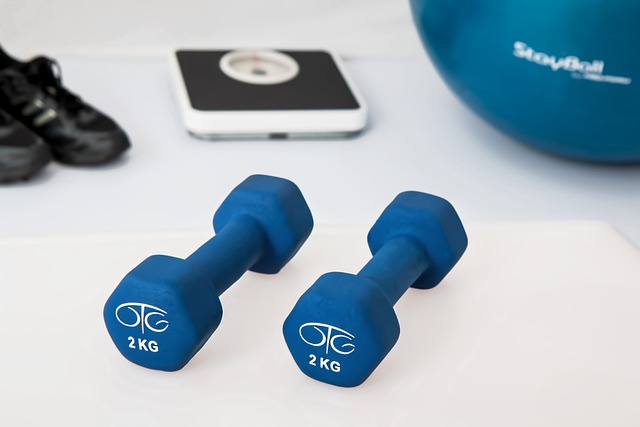-By: Bhavisha Changrani
When it comes to reaching your fitness goals, what you eat is undoubtedly important—but so is when you eat. The concept of nutrient timing focuses on the strategic consumption of food to maximize performance, muscle growth, recovery, and fat loss. By understanding how timing your meals and snacks can influence your body’s response to exercise, you can optimize your fitness results.
This article dives into the science of nutrient timing and how it can be leveraged for muscle building, weight loss, and performance enhancement.

What is Nutrient Timing?
Nutrient timing involves strategically planning when you consume different nutrients—carbohydrates, proteins, and fats—around your workouts to align with your body’s natural rhythms and needs. The core idea is to provide your body with the right nutrients at the right times to fuel exercise, promote muscle repair and growth, and support recovery. Nutrient timing is not just about “eating healthy”; it’s about aligning your intake with your physical demands.
How Nutrient Timing Affects Muscle Building
For those aiming to build muscle, nutrient timing is crucial. When you engage in resistance training or high-intensity workouts, your muscles experience small tears. To repair and grow, these muscles need fuel—primarily protein and carbohydrates.
Pre-Workout Nutrition
The timing of your pre-workout meal plays a role in how much energy you’ll have during your workout and how effectively your body can repair afterward. A meal consumed 1.5–2 hours before exercising should contain both protein and carbs. Protein offers the amino acids required for muscle protein synthesis, while carbohydrates replenish glycogen to fuel muscle function.A well-balanced pre-workout meal helps prevent muscle breakdown and supports performance.
Example:
Chicken breast with quinoa and vegetables
Greek yogurt with berries and honey

Post-Workout Nutrition
After your workout, your body enters a critical recovery phase. Consuming protein within 30 minutes to 2 hours post-exercise is key for muscle repair and growth. Whey protein is often recommended because it’s quickly absorbed, but plant-based protein sources like pea or soy protein can also be effective. Alongside protein, replenishing glycogen stores with a small amount of carbohydrates enhances recovery and prevents muscle fatigue.
Example:
Protein shake with a banana
Grilled salmon with sweet potatoes
Night-time Nutrition
Eating before bed can help with muscle recovery, especially if you have a long gap between dinner and breakfast. Slow-digesting proteins, like casein, can provide a sustained release of amino acids while you sleep, promoting muscle growth and reducing muscle breakdown overnight.
Example:
Cottage cheese with almonds
Casein protein shake
Nutrient Timing for Weight Loss
When it comes to weight loss, nutrient timing can help manage hunger, control calorie intake, and boost fat metabolism, but it’s not a magic solution. The basic principle of weight loss remains caloric deficit—burning more calories than you consume—but timing meals appropriately can support your fat loss efforts.
Breakfast and Early Meals
Eating a balanced breakfast that includes protein and fiber can kick-start your metabolism and help you feel full longer. Protein reduces appetite, and fiber slows digestion, keeping you satisfied until your next meal. This can prevent overeating later in the day, especially when combined with a morning workout.
Pre-Workout Fueling for Fat Loss
Consuming a small amount of protein and low-GI carbohydrates pre-workout may help preserve muscle while burning fat. If you’re doing cardio for fat loss, the body uses glycogen stores for energy, but you want to ensure it’s utilizing fat as well. A light snack can help fuel your session without adding excess calories.
Avoid Late-Night Eating
Late-night eating can be counterproductive for weight loss, especially when it consists of high-calorie or high-sugar foods. Eating late can lead to disturbed sleep patterns and prevent the body from entering the optimal fat-burning state it experiences during rest. It’s best to avoid large meals right before bed.
Optimizing Performance Through Nutrient Timing

For athletes or those engaged in intense training programs, nutrient timing can enhance performance by providing the right fuel for endurance, strength, and recovery.
Carbohydrates: The Athlete’s Energy Source
Carbohydrates are the body’s primary source of energy during exercise, particularly for endurance sports like running, cycling, or swimming. Consuming carbs before and during long-duration exercise can maintain energy levels and prevent fatigue. Carbo-loading before long-distance events can also enhance endurance by increasing glycogen stores in muscles.
Post-Exercise Recovery
To maximize recovery and restore energy levels after intense workouts, athletes should focus on replenishing glycogen stores with carbs and promoting muscle repair with protein. A 2:1 ratio of carbohydrates to protein has been found to be particularly effective for recovery, as it supports both muscle repair and glycogen replenishment.
Hydration and Electrolytes
Proper hydration is a crucial component of performance. Consuming electrolytes (sodium, potassium, magnesium) with meals and drinks can help restore balance after intense physical exertion, particularly in hot conditions or during high-intensity sports.

The Science Behind Nutrient Timing
The science behind nutrient timing hinges on anabolic windows, the periods during and after exercise when your body is primed for nutrient absorption and muscle repair. This concept suggests that consuming the right nutrients during this time enhances muscle recovery and growth. However, recent research suggests that these windows may be broader than initially thought. While consuming nutrients immediately after exercise is ideal, studies indicate that muscle recovery and growth can still occur with a slight delay—up to two hours post-exercise.
Moreover, the overall quality of the diet—including macronutrient balance and micronutrient sufficiency—is just as important as timing. The effects of nutrient timing are likely to be most beneficial when combined with a well-rounded, nutrient-dense diet.

Conclusion
Nutrient timing can be an effective tool to optimize your fitness goals, whether you’re aiming to build muscle, lose weight, or enhance performance. Strategic consumption of proteins, carbohydrates, and fats around workouts helps to fuel your body, promote muscle growth, improve endurance, and support recovery. However, it’s important to remember that nutrient timing is just one piece of the puzzle. The most significant factors in achieving fitness goals remain consistency, overall diet quality, and exercise regimen. With the right combination of smart nutrient timing and a balanced approach to health, you can unlock your full fitness potential.













